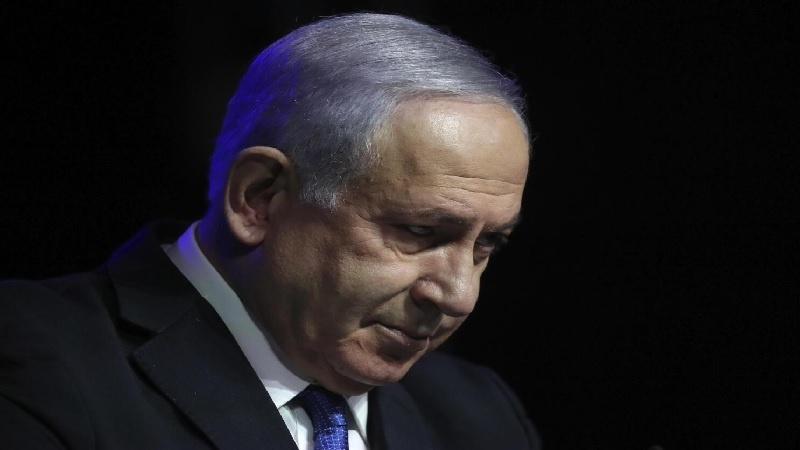AhlulBayt News Agency: According to an Algerian newspaper, the leadership personality of Nasrallah has become clear not only at the level of war management, but also at the level of negotiations with the Zionist enemy, which was mediated by Germany.
The Algerian newspaper Al-Akhbar reported in a report titled "Did the previous Zionist assassinations end the nightmare of resistance?" that the Zionist regime assassinated Abbas Musawi, the former Secretary-General of Hezbollah in Lebanon, in February 1992, which was a painful blow to Hezbollah and the Lebanese resistance, as at that time Hezbollah was trying to build a new structure to protect Beirut and Lebanon from the effects of the Zionist regime's invasion in June 1982.
Al-Akhbar wrote: The Zionist regime thought that after Musawi's assassination, Hezbollah would face serious problems and would not be able to continue its forward movement, but Nasrallah took over the leadership of Hezbollah and the Lebanese resistance and was able to manage events well after a while, and his performance gave a wide space to the political personalities around him.
The report added: After Nasrallah took over the leadership of Hezbollah, he was able to achieve great successes in the framework of the ongoing confrontation with the Zionist regime and the remnants of its army that had occupied parts of southern Lebanon.
Al-Akhbar added: In confronting the Zionist enemy, Hezbollah was able to wage a war of attrition against the Israeli army under the leadership of Sayyed Hassan Nasrallah, which forced the regime to withdraw from southern Lebanon in 2000, and this was the first field victory that elevated Nasrallah's position and Hezbollah.
The Algerian newspaper wrote: In the 2006 war, when Hezbollah insisted on the release of Lebanese prisoners from Zionist regime prisons, Nasrallah's leadership personality became clear not only at the level of war management, but also at the level of negotiations with the Zionist enemy, which was mediated by Germany. During which the Zionist regime's prisons were emptied of all Lebanese prisoners, including Samir Quntar, which was a great achievement for the resistance and Nasrallah. This led to the continuation of the Lebanese resistance's achievements in other scenes of confrontation with the Zionist occupation regime.
Al-Akhbar added: The new Secretary-General of Hezbollah will be elected in the coming days and will have the necessary firmness to continue the path of Seyyed Hassan Nasrallah in rebuilding Hezbollah's capabilities and managing the way to confront the Zionist regime.
The Algerian newspaper emphasized: The Zionist regime has always sought to manage the conflict with the Lebanese or Palestinian resistance through assassinations, but what bothers the Zionists is that these assassinations cannot end the nightmare of resistance for the Zionists, and the continuation of Hezbollah's activities and resistance will create more anxiety for the Zionist leaders.
/129
The Algerian newspaper Al-Akhbar reported in a report titled "Did the previous Zionist assassinations end the nightmare of resistance?" that the Zionist regime assassinated Abbas Musawi, the former Secretary-General of Hezbollah in Lebanon, in February 1992, which was a painful blow to Hezbollah and the Lebanese resistance, as at that time Hezbollah was trying to build a new structure to protect Beirut and Lebanon from the effects of the Zionist regime's invasion in June 1982.
Al-Akhbar wrote: The Zionist regime thought that after Musawi's assassination, Hezbollah would face serious problems and would not be able to continue its forward movement, but Nasrallah took over the leadership of Hezbollah and the Lebanese resistance and was able to manage events well after a while, and his performance gave a wide space to the political personalities around him.
The report added: After Nasrallah took over the leadership of Hezbollah, he was able to achieve great successes in the framework of the ongoing confrontation with the Zionist regime and the remnants of its army that had occupied parts of southern Lebanon.
Al-Akhbar added: In confronting the Zionist enemy, Hezbollah was able to wage a war of attrition against the Israeli army under the leadership of Sayyed Hassan Nasrallah, which forced the regime to withdraw from southern Lebanon in 2000, and this was the first field victory that elevated Nasrallah's position and Hezbollah.
The Algerian newspaper wrote: In the 2006 war, when Hezbollah insisted on the release of Lebanese prisoners from Zionist regime prisons, Nasrallah's leadership personality became clear not only at the level of war management, but also at the level of negotiations with the Zionist enemy, which was mediated by Germany. During which the Zionist regime's prisons were emptied of all Lebanese prisoners, including Samir Quntar, which was a great achievement for the resistance and Nasrallah. This led to the continuation of the Lebanese resistance's achievements in other scenes of confrontation with the Zionist occupation regime.
Al-Akhbar added: The new Secretary-General of Hezbollah will be elected in the coming days and will have the necessary firmness to continue the path of Seyyed Hassan Nasrallah in rebuilding Hezbollah's capabilities and managing the way to confront the Zionist regime.
The Algerian newspaper emphasized: The Zionist regime has always sought to manage the conflict with the Lebanese or Palestinian resistance through assassinations, but what bothers the Zionists is that these assassinations cannot end the nightmare of resistance for the Zionists, and the continuation of Hezbollah's activities and resistance will create more anxiety for the Zionist leaders.
/129

